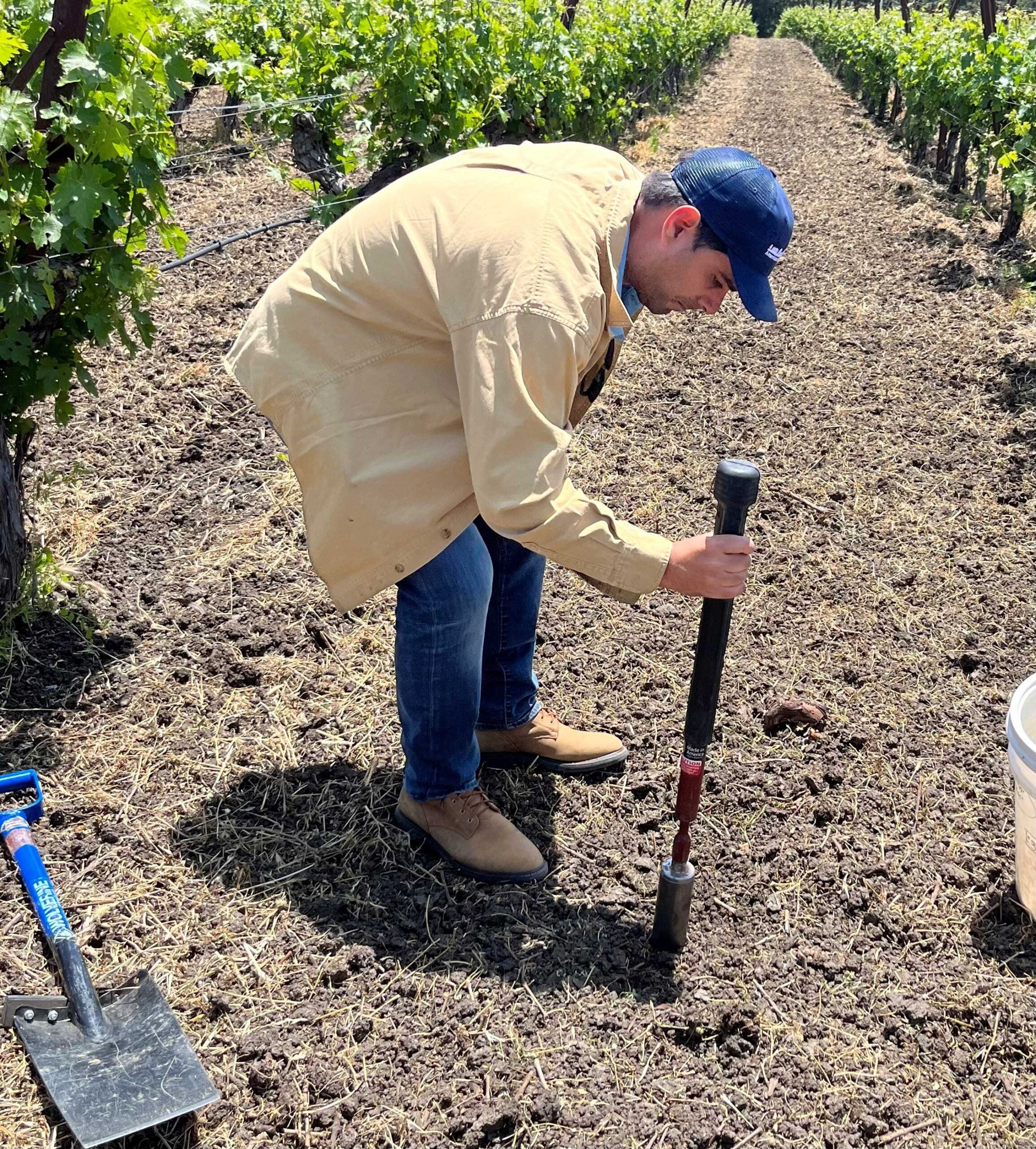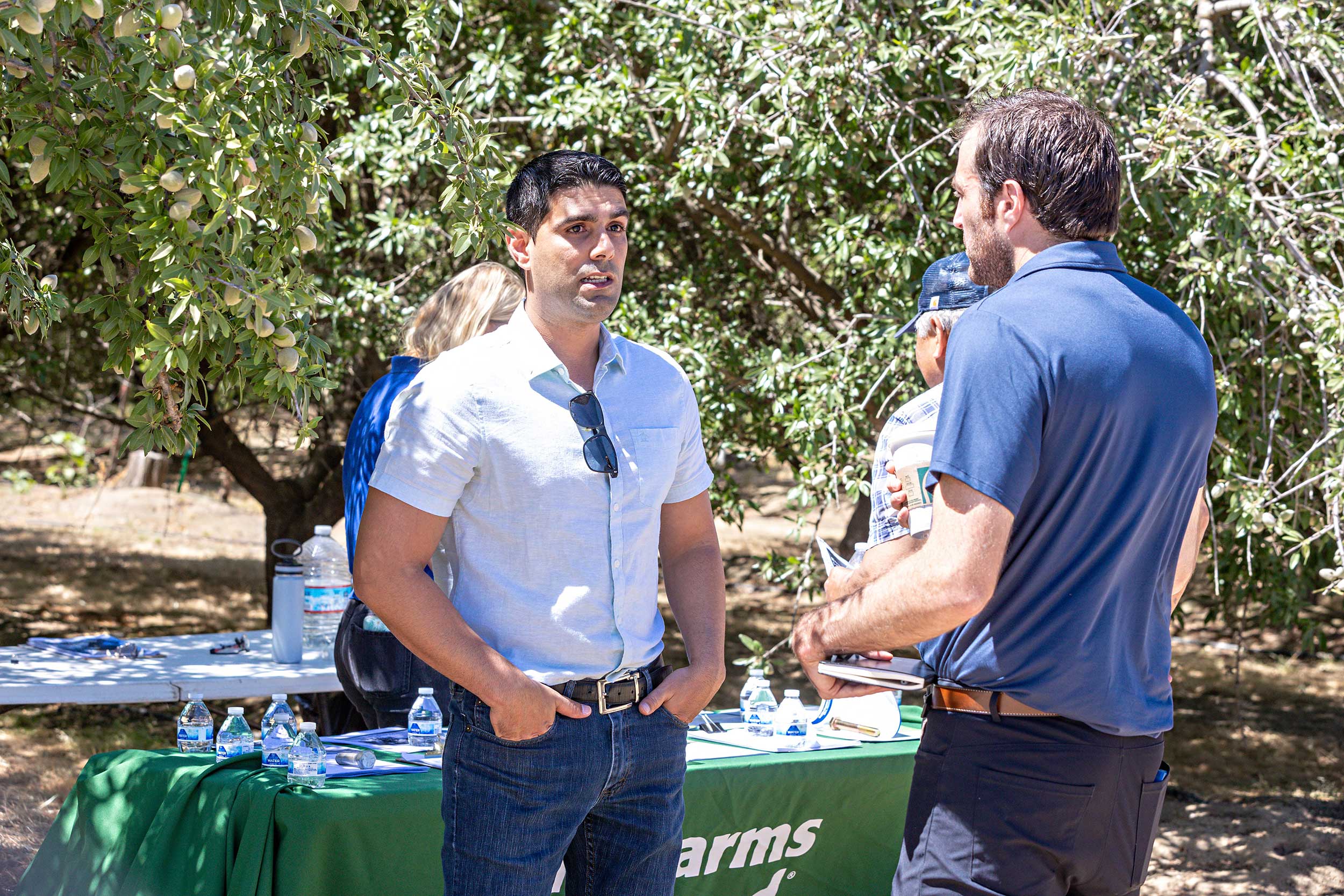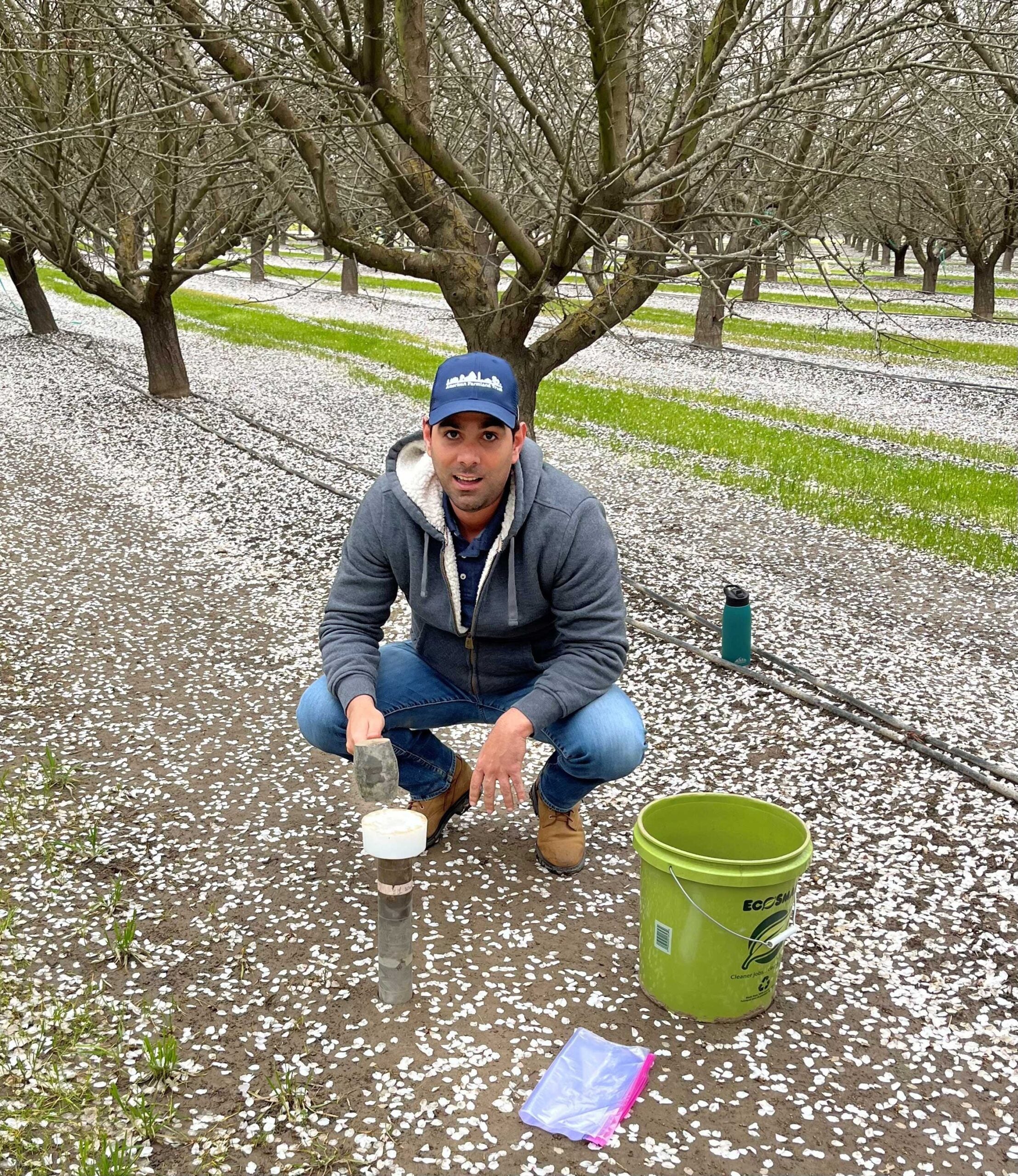For more than a year and a half, Harol Gonzalez Gallardo has partnered with NRCS in California to support historically underserved farming communities. As AFT’s California Agricultural Specialist, Harol applies his skills to farmers who might not otherwise get the technical support needed for their climate resilience and business viability.
Getting this agricultural specialist to his current job, however, was not typical. Harol was born in Cuba under an authoritarian government that strictly limited his freedom and opportunities.
Despite the political situation, Harol received a degree in agronomy and a master’s degree in plant biotechnology from the Central University of Las Villas in Cuba. His parents became university professors and his brother a medical doctor, but Harol wanted to stay true to his agricultural roots.
“My family comes from a farming background,” says Harol. “My grandparents and uncles were farmers all their lives. That’s how I became interested in plants and agriculture in general. My grandfather used to grow crops like peanuts, rice, bananas, sweet potatoes, and avocados. He also raised cows, which he used to give milk to his family.”

Before AFT, he worked with the NRCS as a Technical Service Provider (TSP), or a consultant that met rigorous professional standards to advise farmers on conservation practices. But he wanted to benefit even more farmers, particularly Spanish speakers.
“I saw a need for more TSPs to provide Spanish in-field technical assistance to Latino growers in California,” says Harol. “There are only five individuals currently on the TSP website providing NRCS planning to Spanish-speaking growers. My AFT work helps scale up this effort to benefit this important agricultural community.”
A typical day
Harol explains, “My work is mainly on-site with farmers, offering customized conservation advice and connecting them with resources. I organize and participate in field days and workshops, where we present AFT research findings and discuss regenerative practices like soil health management.”
He is among AFT staff who write farmer profiles documenting the economic and environmental benefits of soil health practices. These examples help farmers address climate change, increase resilience, and lessen agriculture’s impact on natural resources.

Technical and financial help for farmers
Accelerating regenerative practices is critical for California, the nation’s number-one food-producing state. Its top region, San Joaquin Valley, is experiencing worsening droughts, increasing regulations to protect endangered native fish, and growing water demand from Southern California. The Sustainable Groundwater Management Act passed in 2014 requires water users to bring groundwater use to sustainable levels by the early 2040s.
“New or beginning farmers face real barriers to success, due in part to insecure land tenure and expensive land costs,” says Harol. “Meanwhile, fertilizer and soil amendment costs are rising. And, unfortunately, the Valley has some of California’s worst air quality and contaminated drinking water. It has nitrate contamination in its groundwater and a decline in aquatic, wetland, and terrestrial ecosystems.”
Harol added, “Fortunately, NRCS understands these challenges facing farmers, and their programs cover part of the costs of implementing more than 14 conservation practices in California that conserve natural resources, manage farms efficiently, and save farmers money over time.”

For instance, funding from NRCS for irrigation management helps farmers buy moisture sensors, flow meters, weather stations, irrigation pipeline replacements, and even replace systems for more efficient drip irrigation or micro-sprinklers. Nutrient management assistance helps producers reduce synthetic fertilizer use by creating a field-by-field nutrient budget with compost and manure used as supplemental fertilizers.
The most fulfilling part of my job,” explains Harol, “is helping farmers — especially historically underserved communities — benefit economically and environmentally from conservation practices using NRCS criteria.”
Learn more about Harol and the NRCS programs mentioned.
This article was written by Teresa O’Connor, California Communications and Outreach Manager, American Farmland Trust. It was published on AGDAILY on behalf of American Farmland Trust.


